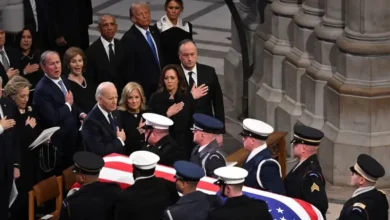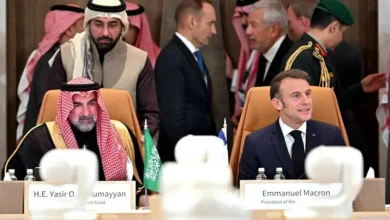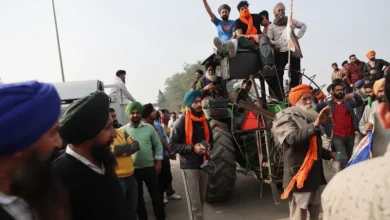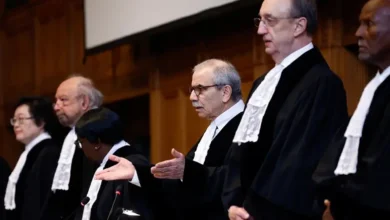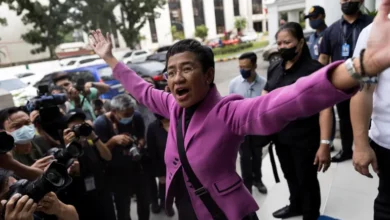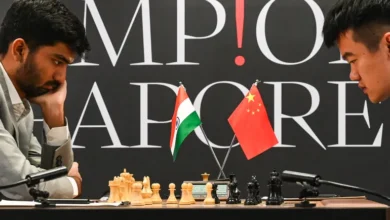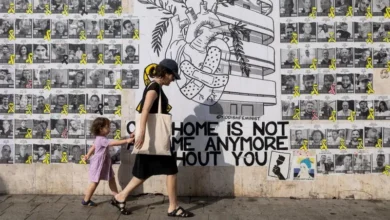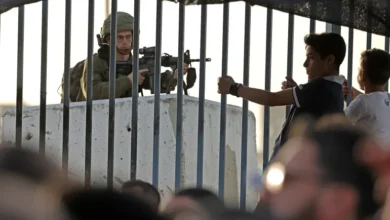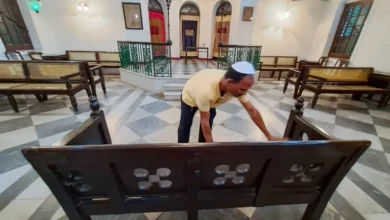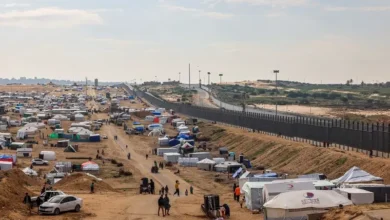Nationwide strike by Indian doctors over Kolkata medic’s rape, murder
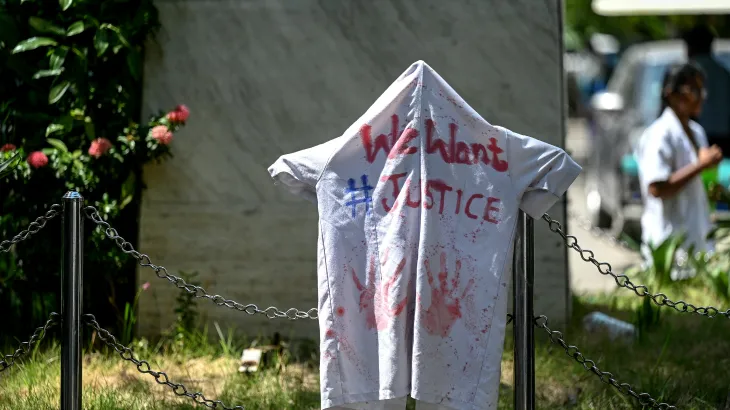
Hundreds of thousands of Indian health workers and their supporters have launched a nationwide strike to protest against the rape and murder of a trainee doctor last week at a government hospital in the eastern city of Kolkata.
Many of the protests on Saturday were led by doctors and other healthcare workers, who were also joined by tens of thousands of other Indians demanding action.
Hospitals and clinics across India turned away patients, except for emergency cases, on Saturday as medical professionals started a 24-hour shutdown at 6am (00:30 GMT). Faculty from medical colleges had been pressed into service for emergencies.
“We want justice,” the protesters shouted, as they gathered in Kolkata to call for better working conditions and treatment not only for health workers, but also for women in general.
“Hands that heal shouldn’t bleed,” one handwritten sign read.
The discovery of the 31-year-old doctor’s bloodied body on August 9 at the state-run RG Kar Medical College and Hospital led to furious protests in several cities across the country.
“We don’t feel safe,” Antara Das, a medical student who joined the protest in Kolkata, told Al Jazeera. “If this happened inside a hospital that is second home to us, where are we safe now?”
The murdered doctor was found in the seminar hall of the teaching hospital where she was working a 36-hour shift. An autopsy confirmed sexual assault.
The Indian Medical Association, (IMA), the country’s largest grouping of medics with 400,000 members, condemned the “crime of barbaric scale and the lack of safe spaces for women”, adding in a statement that both the medical fraternity and the country were “victims”.
Hospitals and clinics in Lucknow in northern Uttar Pradesh state, Ahmedabad in western Gujarat, Guwahati in northeastern Assam and Chennai in southern Tamil Nadu as well as other cities joined the strike.
“We just want to be safe while we are doing our duty,” said Sapna Rani, a 27-year-old woman doctor in the capital, New Delhi, who took part in the strike.
At the Ram Manohar Lohia public hospital, usually one of New Delhi’s busiest, Rani said the “doctor-to-patient” ratio was so abysmal that shifts often lasted 36 hours.
“And after that, there is no proper place to rest,” she told the AFP news agency, describing how doctors took breaks in “wheelchairs and stretchers”.
Struggle for justice
Rakhi Sanyal, a doctor in Kolkata and professor at the West Bengal University of Health Science, denounced the “brutal murder” of the doctor, and called for “justice” for the killing.
“It is the duty of the administration to look after our safety,” she told Al Jazeera. “This should not have happened.”
Doctors are demanding the implementation of the Central Protection Act, legislation to protect healthcare workers from violence.
They are also calling for more stringent laws, including making any attack on on-duty medics an offence without the possibility of bail.
Akanksha Tyagi, a 27-year-old gynaecologist at a state-run hospital in New Delhi said it was “deplorable” that “it took the life of a doctor” for people to take notice.
One man has been detained in connection with the crime, which is now being probed by federal investigators after state government officers were accused of mishandling the investigation.
Many cases of crimes against women go unreported in India because of the stigma surrounding sexual violence and a lack of faith in the police.
